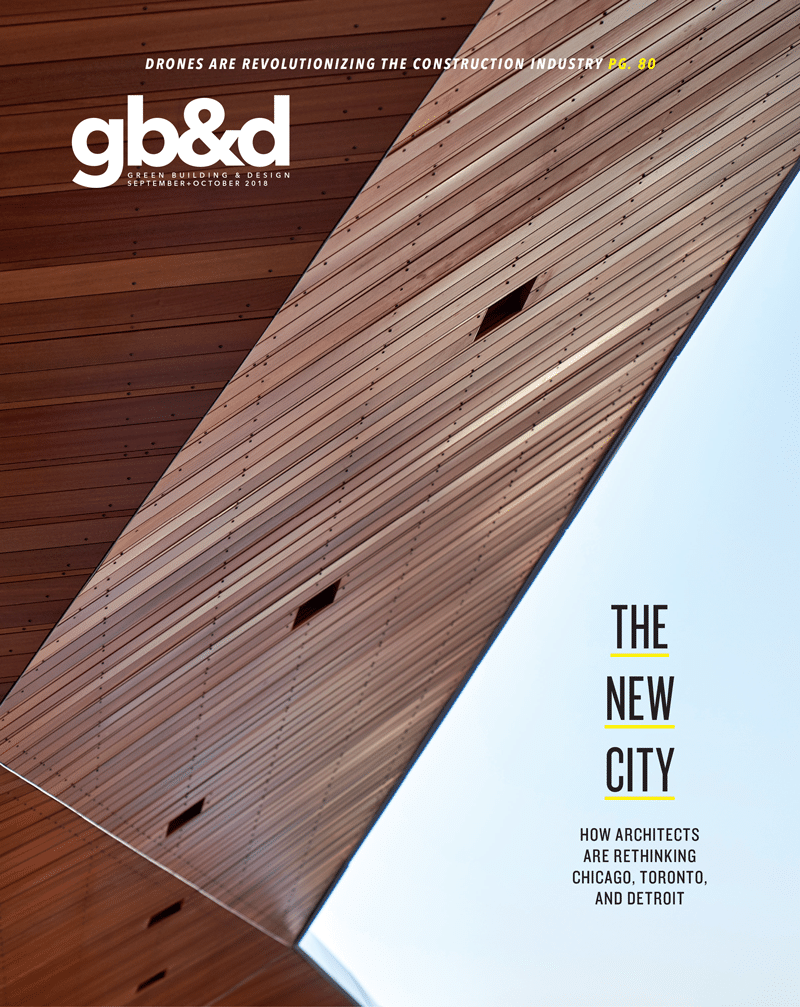Trinity Bamboo delivers a durable, beautiful, sustainable option for your floors.
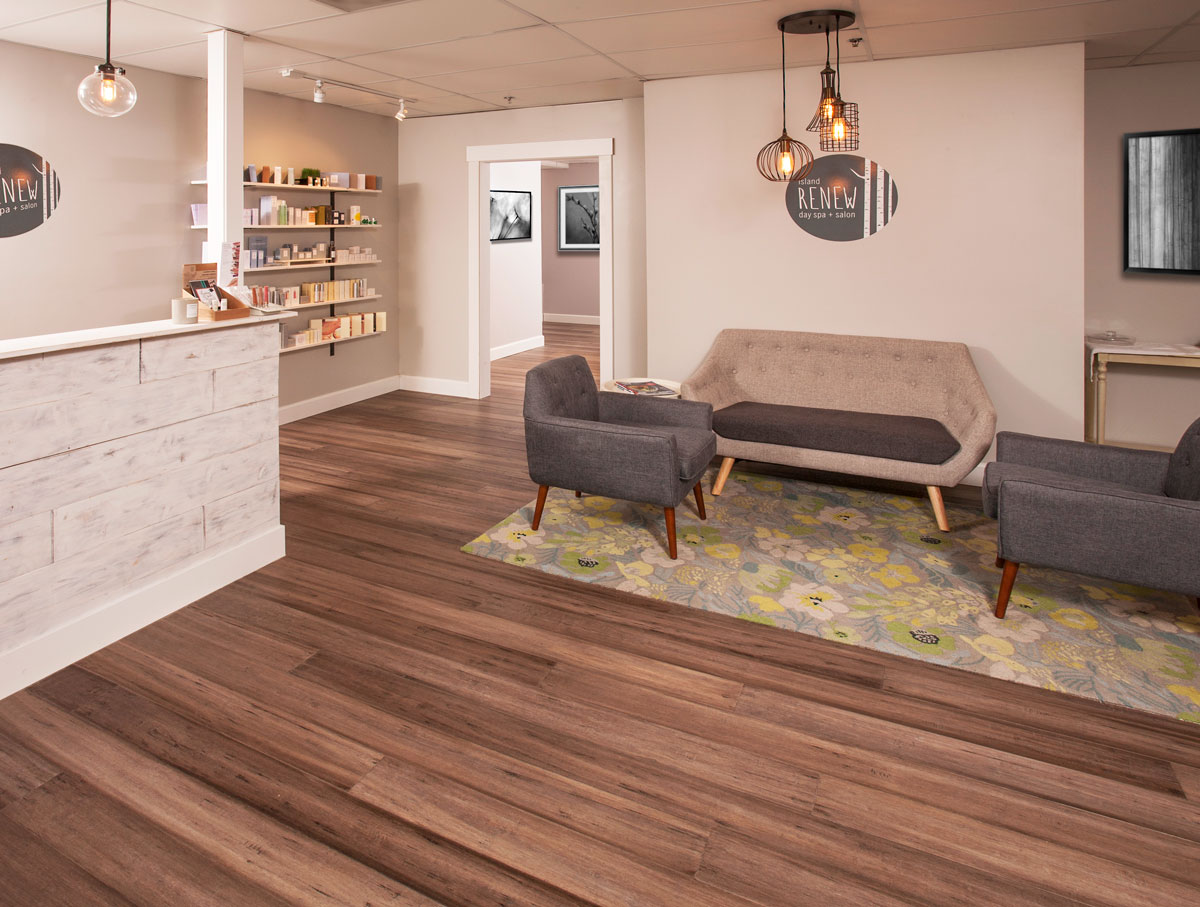
Trinity Bamboo is sold exclusively at trinitybamboo.com. [Photo: Roger Turk, Northlight Photography]
Tom Goodham’s career as a leader in sustainably derived hardwood flooring started with a fascination for unusual solutions. “I was captivated by the idea that there were options for hardwood flooring that didn’t have anything to do with traditional hardwoods, that people were making this product out of fast-growing bamboo,” says Goodham, president of Trinity Bamboo and former vice president of manufacturing and operations for Teragren Bamboo. That product was traditional bamboo flooring, and it was the only style of bamboo flooring available from approximately 1995 when the industry started until 2005 when Strand Bamboo hit the market.
Unlike traditional bamboo flooring in almost every way, strand bamboo combined the durability and dimensional stability of tropical hardwoods with the green credentials of traditional bamboo flooring products. “The first time I saw strand bamboo I knew it was going to revolutionize the world of flooring,” he says.
FROM OUR SEPT+OCT 2018 ISSUE
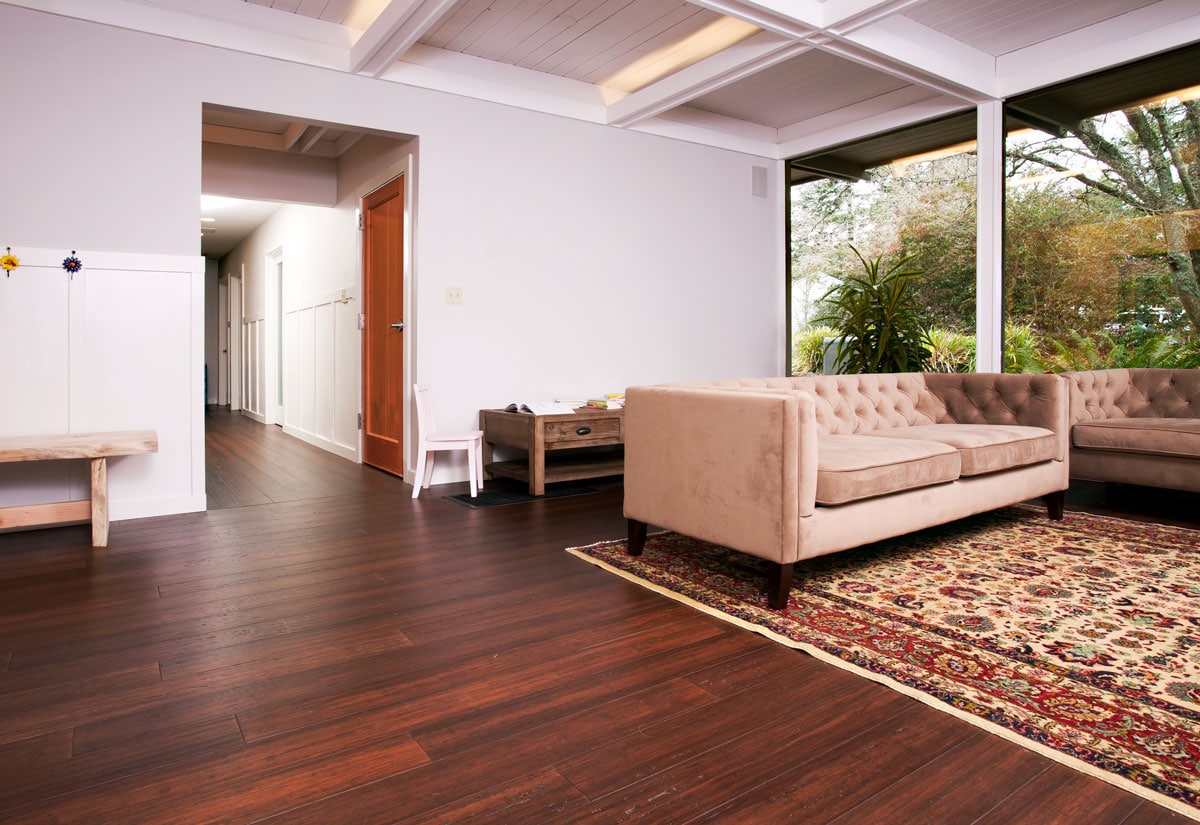
[Photo: Roger Turk, Northlight Photography]
Durability & Hardness
Few traditional hardwoods offer the performance characteristics of premium strand bamboo flooring. With an average Janka rating of 3500 (Janka measures the force required to embed a .444-inch diameter steel ball halfway into a sample of wood)—strand bamboo is 141% harder than North American hard maple. “Strand bamboo is very difficult to dent, and, thanks to the screen and recoat refinishing process, has an almost unlimited life span in typical commercial or residential spaces,” Goodham says.
Stability
Having a dimensional change coefficient of .0014, strand bamboo flooring is one of the most dimensionally stable natural materials used in construction today. “To find a hardwood as hard and as dimensionally stable as strand bamboo you’d have to go to quarter-sawn teak or mahogany,” Goodham says. But these tropical hardwoods are mostly harvested from rainforests, increasing stressors on already struggling ecosystems.
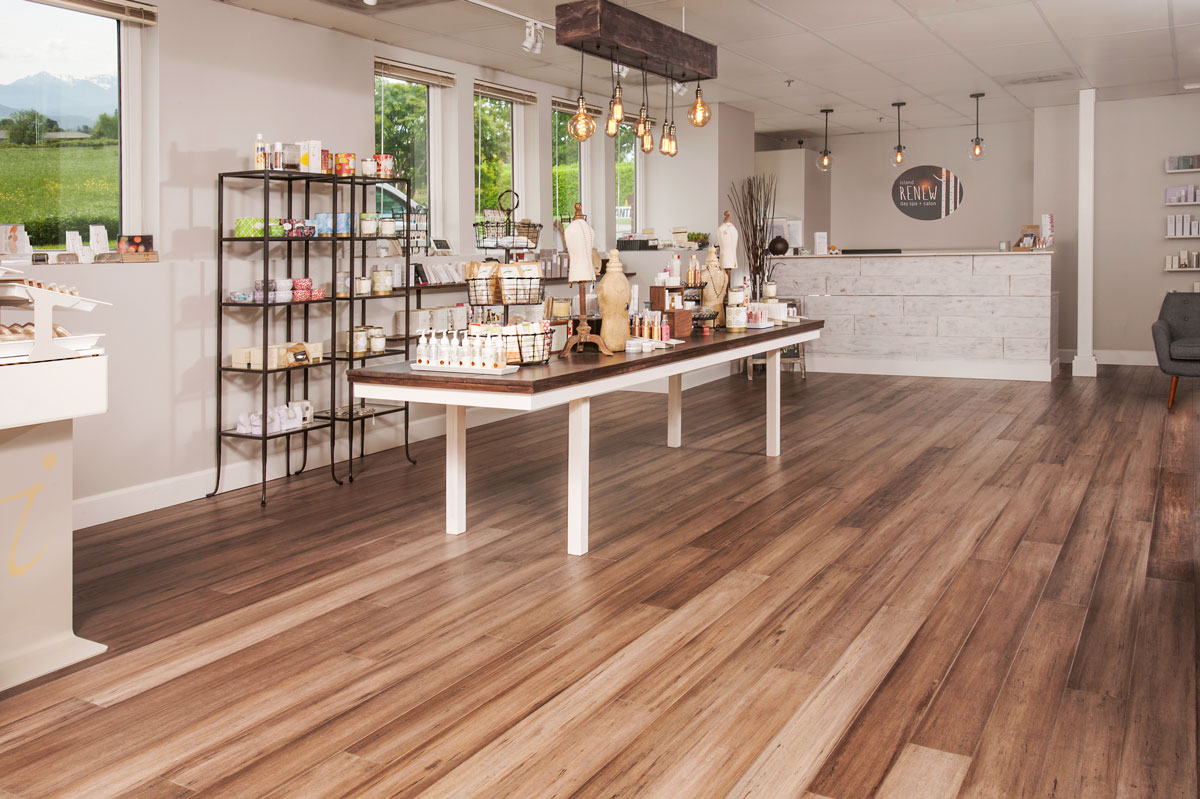
[Photo: Roger Turk, Northlight Photography]
Sustainable Sourcing
Rapidly renewable, Moso bamboo’s cultivation and harvest does not result in damage to its forests. Grown on lush mountainsides in China, this perennial grass is cut by hand by villagers who lease the harvest rights from their local government. Its rapid regrowth means bamboo forests sequester more carbon than typical hardwood forests. “These are largely naturalized strands of bamboo that require no irrigation or pesticides,” Goodham says. “Because bamboo culms are harvested and transported off the mountain by hand, the soil and ground cover is not disturbed, which reduces or eliminates human-caused soil erosion.”
Aesthetics
Bamboo is naturally a light maple color and, like many hardwoods, is often sanded until it is perfectly smooth. Like other hardwoods, strand bamboo takes well to texturing and staining. “Strand bamboo is a chameleon in that, as a manufacturer, I can make it look like any species of hardwood I want,” Goodham says.
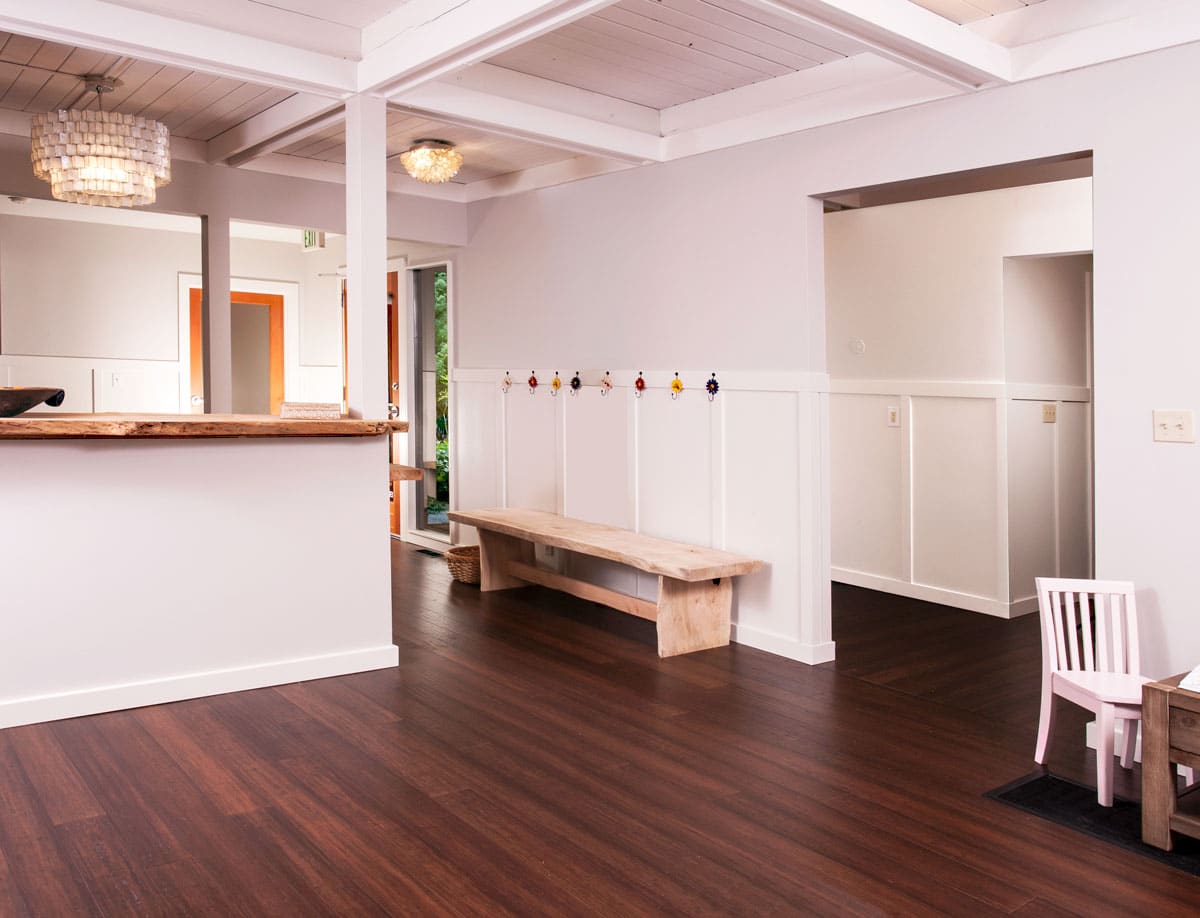
[Photo: Roger Turk, Northlight Photography]
In addition to color options, wire brushing and hand-scraping treatments give Trinity Bamboo’s strand bamboo a natural-looking grain that Goodham says helps to hide the reality all flooring experiences—dirt, scrapes, and scratches. When he started Trinity Bamboo in 2016, he wanted to sell flooring products with an authentic texture. “Our culture is attentive to changes that mar a perfect finish—think of the first scrape on your new car’s bumper—but floors are floors. You walk on them. We run, play, slide, hop, entertain friends, feed dogs, roll Hot Wheels, and otherwise live life to the fullest on our floors,” he says. “A floor is like a human—a bit of character hides the wear and tear of daily life. Aren’t we all happier that way?”
Who is Tom Goodham?
Tom Goodham’s entrance into sustainable flooring started when he joined Teragren Bamboo in 2003. “We were sustainability activists, riding the crest of the green wave and carrying with us the enthusiasm and fervor of those who had figured out it’s possible to have fun and succeed in business by taking care of the planet, our workers, and our customers,” he says.
During his 13 years at Teragren, Goodham learned the ins and outs of manufacturing, logistics, and sourcing from operations in China. “I learned how to manufacture the best flooring. I learned who the craftspeople were. And most importantly, I learned how to do business in China without cutting corners—ever.” In 2016 he decided to start his own company, Trinity Bamboo, and apply everything he learned with the goal of bringing the highest quality flooring product possible direct to builders, developers, and end-consumers. “Trinity Bamboo is built on three core principles: quality, integrity, and value, none of which are optional,” he says. Trinity Bamboo’s flooring is also FloorScore Certified and Clean Air Verified.
Did You Know?
Dimensional change coefficient measures the expansion and contraction of a material in environments with shifting temperature and humidity levels. The more a material expands and contracts, the more difficult it can be to use in dry and humid climates. “To me the greatest attributes of strand bamboo are its hardness and dimensional stability,” says David Keegan, president of Seattle-based manufacturer Bamboo Hardwoods and a longtime industry colleague of Goodham. “There are simply no other flooring options that exhibit such durability and stability.

